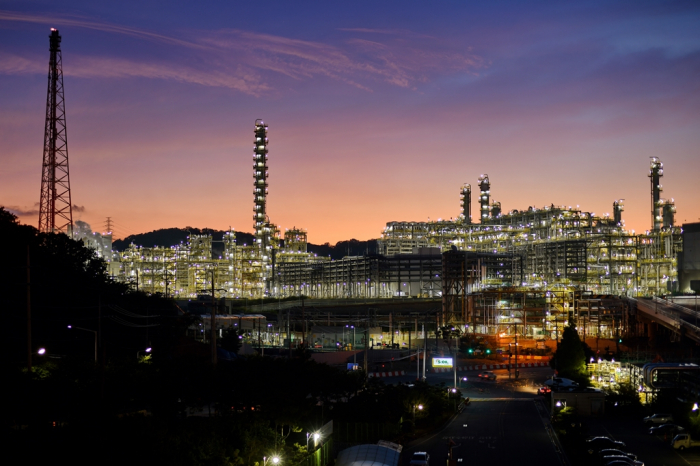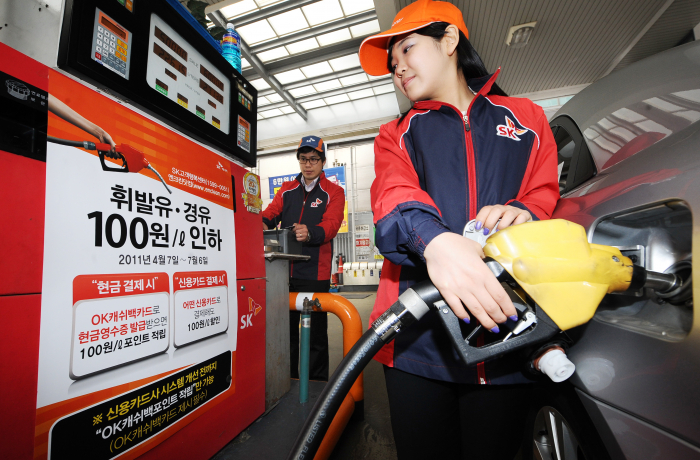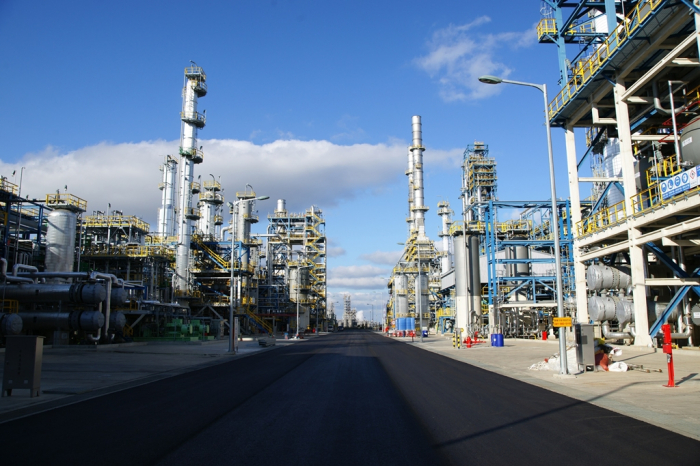Refineries
ESG fever puts Korean oil refiners in quandary over facility upgrades
Despite the global green initiative, refiners will need to keep their facilities up to date to survive, analysts say
By Jan 16, 2022 (Gmt+09:00)
3
Min read
Most Read
LG Chem to sell water filter business to Glenwood PE for $692 million


Kyobo Life poised to buy Japan’s SBI Group-owned savings bank


KT&G eyes overseas M&A after rejecting activist fund's offer


StockX in merger talks with Naver’s online reseller Kream


Mirae Asset to be named Korea Post’s core real estate fund operator



South Korea’s four major oil refiners have for decades been at the forefront of the industry push to upgrade facilities, a combined multi-billion-dollar effort that has often led to higher refining margins and increased profit.
Korea’s top refiner SK Energy, wholly owned by SK Innovation Co., and three other local peers – GS Caltex Corp., S-Oil Corp. and Hyundai Oilbank Co. – have spent big money on their refining facility advancement to produce quality end-products such as gasoline from cheap and dirty crude oil.
Hyundai Oilbank’s facility advancement rate is among the industry’s highest with 40.6%, followed by GS Caltex’s 34.4%, S-Oil’s 33.8% and SK’s 24.9%, according to industry data. Those figures compare with around 20% for refineries in China and Japan and 10% for refining firms in Russia and Saudi Arabia.
With the global drive to go green, however, environmental, social and governance (ESG) principles have become the new normal in the energy sector, forcing refiners across the globe to look beyond the traditional business of oil refining for sustainable growth.
Korean companies are even trying to change their company names to shed the image of high-carbon emitters and invest more in their non-refining businesses amid the global ESG fever.

Nevertheless, they can’t drastically cut their investment in upgrading refining facilities if they want to secure advanced refining technology to remain competitive, analysts said.
“With the accelerating adoption of the ESG theme across various industries, a number of oil refiners around the world will face shutdowns or lose money unless their facilities are advanced enough to refine low-quality crude oil,” said a local refining company official.
Last year, Korean refiners’ profits from their refining business significantly dwindled, with most of them posting a profit margin in the 2-3% range.
In the first nine months of 2021, Hyundai Oilbank posted 364.9 billion won ($307 million) in operating profit on sales of 14 trillion won from its refining business. GS Caltex’s refining profit stood at 788.5 billion won on revenue of 18 trillion won.
To make matters worse, the price of bunker C fuel oil, widely used as a base oil in advanced refining facilities, rose to $69 a barrel in December from $49.98 in January of 2021, increasing the cost burden on refiners.
CASH COW FOR NOW
Analysts said refiners will have no choice but to keep upgrading their facilities as more than two-thirds of their sales revenue still comes from oil refining.

To improve refining margins, the difference between the total value of petroleum products and the cost of crude and related services, refiners have increased their purchase of cheaper crudes from Latin America.
Hyundai Oilbank, for example, last year bought Colombia’s Castilla, which is not as good as crude from the Middle East but about 10% less expensive.
Hyundai’s Middle Eastern crude oil accounted for 25.9% of its total imports in 2021, compared with 42.3% in 2019. By contrast, imports from non-Middle Eastern countries increased to 65.3% from 45%.
GS Caltex’s ratio of non-Middle Eastern crude oil rose to 25.3% from 18.2% over the same period.
In July of last year, SK Innovation unveiled a long-term vision to become an eco-friendly company by investing 30 trillion won into green projects by 2025.
“While ESG has become a household name even in the oil industry, refiners will need to keep their facilities up to date until the whole world says no to fossil fuels,” said an industry official.
Write to Jeong-Min Nam at peux@hankyung.com
In-Soo Nam edited this article.
More to Read
-
 EV batteriesSK Innovation to split battery unit, eyes Nasdaq debut as it goes greener
EV batteriesSK Innovation to split battery unit, eyes Nasdaq debut as it goes greenerJul 01, 2021 (Gmt+09:00)
4 Min read
Comment 0
LOG IN


